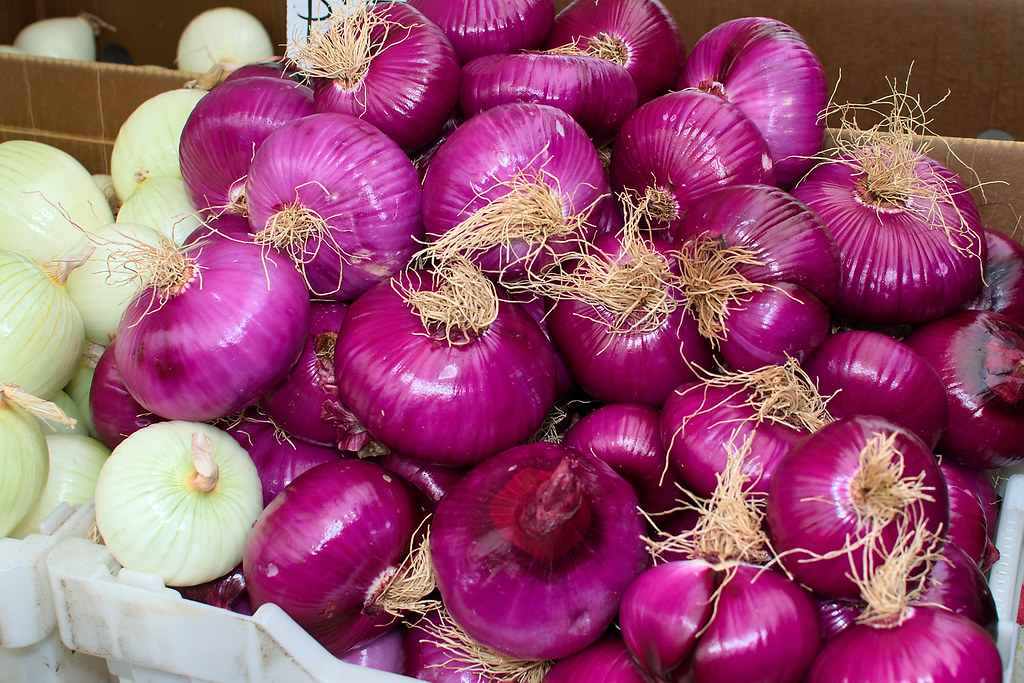The Dutch Ui Posted by Sten on Oct 20, 2015 in Culture, News
When you hear the Dutch “ui”, you might think about the sound that some words have, such as buis, huis, or sluizen. This post is about something else, however. If you want to know more about the sound, you can find a great post on this by my dear colleague Karoly.
Other than the “ui” sound, ui itself also means something in Dutch: onion. And there are lots of it! The Dutch ui has made it to the top of most exported vegetables of the Netherlands, with one billion kilograms (~2 billion lbs) exported each year. All these onions go to 120 countries all over the globe. That is good for around 200 million euros. Not that much, you might think, but that is because onions are cheap, and thus you have to grow a lot of them to make a good profit.
Het internationale Uiencongres
Last Monday, on the 19th of October, the Euronion-Congres was organized – an international onion conference – in Middelburg, Zeeland. Many international players in the onion sector were part of it, and one of the themes was the export position of the Dutch ui. There is a new strategy – because the global market is not at all satisfied, and the Dutch will find ways to bring it far out into the world!
Why is it so popular?
Maybe it is cheaper than other onions, but one thing is for sure: the boycott of Russian products helped the Dutch farmers a lot. In the past few years, the export of onions increased by 10 percent. One variant that becomes more and more popular is the roze ui (pink onion). It is a bit pittiger (spicier) than the normal, yellow onion.
Huilen
Just like any other onion, the Dutch ones will also make you cry! Unfortunately, not much can be done about that. The agents that make you cry are also giving the onion its taste, and thus removing these would make the vegetable tasteless. Not yummy!!!
Food
Do you feel like some onions now? Some Dutch foods, like the Kapsalon, use a lot of onion. Great stuff!
Other words
There are, by the way, also other words for the ui in Dutch: the ajuin or juin in the south, and in Flanders in Belgium, and in Friesland, it is known as the siepel or sipel, which are pronounced the same way.
Which onion variant do you like best?
Are the onions in your region from the Netherlands?
What is the most important vegetable for your country’s export?

Build vocabulary, practice pronunciation, and more with Transparent Language Online. Available anytime, anywhere, on any device.
About the Author: Sten
Hi! I am Sten, both Dutch and German. For many years, I've written for the German and the Dutch blogs with a passion for everything related to language and culture. It's fascinating to reflect on my own culture, and in the process allow our readers to learn more about it! Besides blogging, I am a German-Dutch-English translator, animator and filmmaker.




